ABOUT US
What is the MENA legal Network?
The MENA Legal Network has a dynamic and ambitious aim: to bring together like-minded scholars, practitioners, students, lawyers and academic to share views, comments and opinions on legal developments in the MENA Region from an academic perspective. In order to achieve this aim, the MENA Legal Network seeks to make some of these analyses available to a wider audience using our network of academics and institutions, through a variety of different mediums, including seminars, conferences and workshops as well as publishing in journals and books.
Who are we?
We are three colleagues specialising in constitutional law, international law and islamic law who have worked together for many years who want to use our experience and expertise to build and develop a network of scholars, academics and practitioners to share expertise and to provide qualified and informed analyses of legal, constituitonal and political developments in the MENA region. Together, we bring over 40 years’ experience of research, analysis and practice and several years’ of academic and work experience in various countries in the MENA region, dealing in particular with legislative, executive and judicial institutions, as well as with NGOs, civil society and public associations.
Francesco Biagi (Co-Founder)
Francesco Biagi is a Senior Assistant Professor of Comparative Public Law at the Department of Legal Studies of the University of Bologna, as well as a Research Fellow at the Center for Constitutional Studies and Democratic Development (a partnership between the Johns Hopkins University SAIS Europe and the University of Bologna). From October 2015 to January 2017 he was a Senior Research Fellow at the Max Planck Foundation for International Peace and the Rule of Law (Heidelberg), where he now works as a legal consultant.
Biagi obtained a Ph.D. in Constitutional Law from the University of Ferrara after graduating in Law from the University of Bologna (magna cum laude). He was Visiting Professor at the College of Law of the University of Illinois (since 2015) and at the Tel Aviv University Faculty of Law (2022), as well as Visiting Researcher at the Benjamin N. Cardozo School of Law (2012). He is the Coordinator of the Sub-Group on “Africa” of the International Association of Constitutional Law (IACL) Research Group on “Constitutionalism in Illiberal Democracies”. Since 2013 he has provided trainings and consultancies (on various projects related to constitution-building and the rule of law) to governmental and judicial institutions in Sub-Saharan Africa, Middle East and North Africa, and Latin America.
He has written extensively on transition processes, constitution-building, forms of government, constitutional justice, fundamental rights, federalism, electoral justice, hybrid and illiberal regimes. His latest publications include European Constitutional Courts and Transitions to Democracy (Cambridge University Press 2020); Political and Constitutional Transitions in North Africa: Actors and Factors (edited with J.O. Frosini, Routledge 2015); “Constitutional Review After the Arab Spring: Reforms, Challenges and Perspectives”, in A. Schoeller-Schletter (ed.), Constitutional Review in the Middle East and North Africa (Nomos 2021); “Constitution Drafting After the Arab Spring. A Comparative Overview”, 29 Indiana Journal of Global Legal Studies 1 (2022).
Siraj Khan (Co-Founder)
Siraj Khan holds a degree in Law (2006), a Masters’ degree in International Law (Bristol Law School, UWE) and was called to the Bar of England and Wales in 2010 (Inns of Court School of Law; The Honourable Society of Lincoln’s Inn, London). He also holds a Research Masters’ degree in Islamic and Middle Eastern Studies from the University of Edinburgh. In 2011, he was appointed as a Board Member of the Scottish Legal Complaints Commission by Scotland’s Minister for Justice, where he served until 2013.
Siraj has over 10 years’ experience of working on strengthening the rule of law and enhancing the knowledge of state and institutional actors ocomparative constitutional law, international law and islamic law in several jurisdictions in the Middle East and North Africa. Currently, Siraj is working as Head of Projects for an international non-governmental organisation focusing on international peace and the rule of law, where he uses his established expertise to design and deliver multi-year projects related to strengthening the rule of law, judicial independence and integrity, constitution-building, legislative drafting and compliance with constitutional principles and with international law. He has extensive experience of working in conflict- and post-conflict countries during constitutional crises and legal reform processes across the MENA region, including in Yemen, Sudan, Libya, Tunisia, Morocco, Jordan and Palestine, as well as in Afghanistan and Pakistan. He has several years’ experience of working on constitutional and legal transition processes in post-conflict states in the MENA region and has also provided expertise on matters of constitutional law, public international law and Islamic law to various state institutions, international organisations and NGOs. Siraj also serves as an international advisor for the Jindal Society for International Law.
Siraj is currently reading for his Ph.D at the University of Tübingen on the constitutionalisation and codification of Islamic law in modern Muslim-majority States. He has also received training in traditional Islamic law and Islamic legal methodology and has advised on matters related to Islamic law to judicial institutions in several jurisdictions. Siraj is fluent in English, Arabic and Urdu and is working to increase his fluency in German and Persian.
Islam Mohammed (Co-Founder)
Islam Mohammed is a doctoral candidate in the Comparative Constitutional Law program at the Central European University (CEU). He worked as a Research Fellow at the Max Planck Foundation for International Peace and the Rule of Law in Jordan, Palestine, and other projects between July 2018 – April 2020. He specializes in Constitutional Law and worked in several cases before the Supreme Constitutional Court of Egypt (SCCE), including the case that determined the unconstitutionality of Art. 10 of the Protest Law No. 107 of 2013, on 3rd of December 2016. He has also worked with several NGOs, including the Egyptian Initiative for Personal Rights (EIPR) and People in Need (PIN).
He obtained a Master’s degree in Law in 2016 from CEU and holds a Master’s degree in Law from Ain Shams University in Cairo, Egypt (2013). He received the Seif Prize for the best research on the constitutionality of Egyptian laws regulating rights and freedoms in 2016. Further, he received the Civil Society Leadership Award from Open Society Foundation (OSF) in 2015.
His latest publications include: ‘Supreme Constitutional Court of Egypt (Al-Mahkamah al-Dustūrīyah al-‘Ulyā)’, Max Planck Encyclopaedia of Comparative Constitutional Law, 2020 (Accepted, forthcoming-2022), ‘Public Assemblies, Between the UN system and the comparative jurisprudence’, Max Planck Yearbook of United Nations Law, Vol. 23, 2019; and: ‘How did the Supreme Constitutional Court of Egypt provide legitimacy for storming ‘spontaneous demonstrations’’ (2019), Legal Agenda (in Arabic).
Why the MENA Legal Network?
A small and dynamic team of academics, scholars and practitioners saw the need to fill a gap: the need to develop a network of specialists from various that are in regular contact to contribute their perspectives and experience. Collaboration, as they say, is ‘King’.
Seeking to fill this gap, the MENA Legal Network wants to serve as a platform for those interested in developing a better understanding of current legal developments in the MENA Region, in an independent, autonomous and nonpartisan manner. If collaboration is ‘King’, then rigorous academic standards must undeniably be ‘Queen’.
But we certainly cannot do this alone. We need the assistance of other qualified, intelligent, passionate, analytically rigorous colleagues to assist us in achieving our aims.
The MENALegalNetwork.org team.
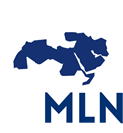

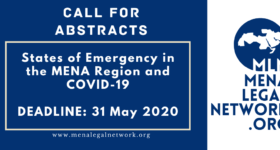
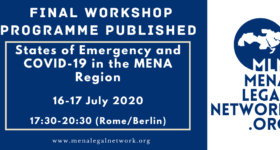
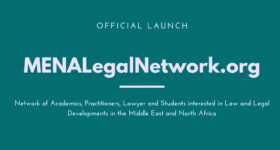
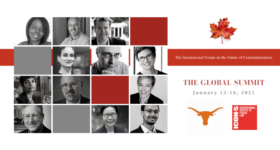
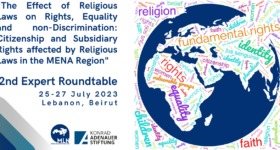
[…] ABOUT US […]